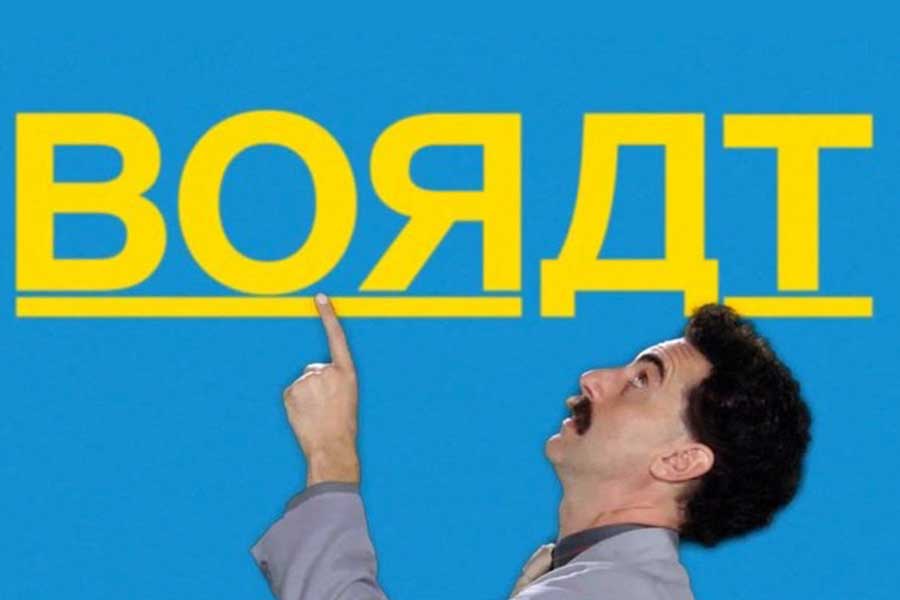
Verbatim | Feb 23,2019
In an ironic twist of fate, the best Ethiopian cinema has to offer is actually hidden from view, almost impossible to unearth and value. The likes of Teza and Lamb are lucky enough to find international recognition and thus local appreciation.
But there are those that are unfortunate, dusted off the collective memory, despite utilising only local talent and resources to articulate our peculiar circumstances. One of these movies is Enena Bete.
The Ethiopian equivalent of the Wolf of Wall Street, it tells the rags to riches, and then rags, story of a salesperson for a suspicious real estate company.
Biruk (Girum Assefa) is a school teacher who aspires to be a poet. But his artistic aspirations have left him with a wallet full of poetry jotted down on pieces of paper, as the protagonist and his friend point out, instead of money. He needs to get a “real” job, one that pays the bills.
He makes a radical career jump. He applies for an ambitious new real estate company as a salesperson. He gets the job. There are training courses. They are told that Addis Abeba boasts 15,000 millionaires, millions of residents and too few houses. House buyers are a dime a dozen and getting them to cough up money for a house should be like taking candy from a baby, they conjecture.
Biruk fits perfectly well into the role of a salesperson. He sells houses left and right and becomes one of the firm’s finest salespeople. His commissions go up, he buys a car, gets the girl and rents a spatial studio.
Life is good, but only for a while. The firm had promised to finish the houses within two years, but there is no construction taking place.
Clients begin to ask questions, “Where are the houses?”
The firm’s employees become equally dumbfounded. No one knows where all the money is going, except for the honey-mouthed Paul, who owns the company. When the employees confront him, he persuades them that he had run into some trouble and would soon get additional funding to get construction going. In the meantime, he insists, they should continue to sell.
They abide, but it soon becomes evident that the clients, having already paid, will not get the houses or even their money back. Lives are destroyed and hopes squashed. For the foot soldiers, the sales team that stood on the front lines and recruited home buyers, they do get to keep their commissions but not a good night’s sleep.
Released in 2014, the allusions to the real-life controversy surrounding Access Real Estate and Ermias Amelga are uncanny. Even the similarities in physical feature between Ermias and Paul - light-skinned, bald and a prominent nose - are eerie.
Prudently enough, the film does not present the circumstances in simplistic terms. The filmmakers recognise the complexity of such matters, never passing judgment at who was at fault. The film is instead interested with the lives of the people who were caught in the crossfire. These were the buyers that never received homes and the salespeople that were left to live with the choices they made, such as having to continue to sell houses even after finding out that they may never be built.
Enena Bete’s, Amharic for “Me and My House,” insistence on maintaining the open-ended state of the controversy is a testament to the research that has gone into the making of the movie. The dialogue and plot are carefully constructed to tell a story but also not to sacrifice a realistic representation of one of the fastest-growing and most flexible industries in Ethiopia’s economy.
In deep contrast to most Ethiopian movies, an effort is taken to make the characters talk, act and dress in a manner that resembles their professions. This is no easy task, and a lack of this is why most local movies come out looking naïve and silly.
The film boasts one of the best uses of a white actor. Mostly, white characters are depicted stereotypically - sometimes as rich people willing to adopt a child or as villains scheming to steal from the country.
In Enena Bete, the best performance comes from David D. Maureen, who plays the sales head of the firm. Mostly playing the part of comic relief, he does not come off as condescending nor as a caricature of a white man.Some of the characters of the movie are one-dimensional, while certain scenes are clichéd. Through Maureen’s character, the film finds some of its most spontaneous scenes and well-developed dialogue.
But the prize goes to the filmmakers, Dirbidil Assefa and Girum Assefa, director and writer, respectively, and their crew. Admittedly, the film does not have some of the polish of the likes of Teza, which had the resources to make use of superior cameras, lighting equipment and an experienced technical crew.
Enena Bete is not that lucky, but it is no less innovative. Its opening credit sequence is punchy and modern, and its use of music is sophisticated instead of relying on pop songs and tired replays of film scores from Hollywood movies as is usually the case with local productions.
Indeed, Enena Bete is a triumph in innovation despite limited resources and infrastructure. It is an argument against most Ethiopian movies that justify their terrible production designs and scripts on the lack of the industry’s sophistication.
It is a movie that says, “Put up or shut up.”
PUBLISHED ON
Mar 28,2020 [ VOL
20 , NO
1039]

Verbatim | Feb 23,2019

Fortune News | Oct 04,2021

Fortune News | Apr 10,2021

News Analysis | Jun 19,2021

Advertorials | Jul 31,2024

Fineline | Oct 03,2020

Radar | Sep 10,2021

Films Review | Oct 31,2020

Sponsored Contents | Oct 25,2021

Radar | Jun 19,2021

My Opinion | 132105 Views | Aug 14,2021

My Opinion | 128507 Views | Aug 21,2021

My Opinion | 126435 Views | Sep 10,2021

My Opinion | 124046 Views | Aug 07,2021

Jul 12 , 2025
Political leaders and their policy advisors often promise great leaps forward, yet th...

Jul 5 , 2025
Six years ago, Ethiopia was the darling of international liberal commentators. A year...

Jun 28 , 2025
Meseret Damtie, the assertive auditor general, has never been shy about naming names...

Jun 21 , 2025
A well-worn adage says, “Budget is not destiny, but it is direction.” Examining t...

Jul 13 , 2025 . By YITBAREK GETACHEW
The Addis Abeba City Revenue Bureau has introduced a new directive set to reshape how...

Jul 13 , 2025 . By BEZAWIT HULUAGER
Addis Abeba has approved a record 350 billion Br budget for the 2025/26 fiscal year,...

Jul 13 , 2025 . By RUTH BERHANU
The Addis Abeba Revenue Bureau has scrapped a value-added tax (VAT) on unprocessed ve...

Jul 13 , 2025 . By NAHOM AYELE
Federal lawmakers have finally brought closure to a protracted and contentious tax de...